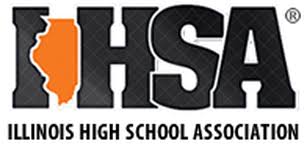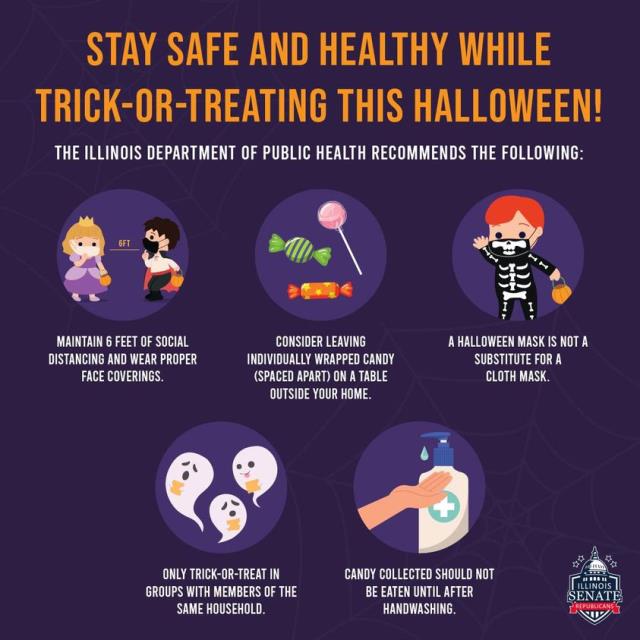Show us data behind COVID-19 decisions
 Senator Jil Tracy is joining her Senate colleagues in calling for greater transparency about the data behind critical decisions about COVID-19 that are negatively affecting Illinois businesses and their employees. Senator Jil Tracy is joining her Senate colleagues in calling for greater transparency about the data behind critical decisions about COVID-19 that are negatively affecting Illinois businesses and their employees.
The 47th District Senator is especially concerned as the Illinois Department of Public Health announced October 29 that it will place Region 3 – West-Central Illinois – under additional COVID-19 mitigations beginning at 12:01 a.m. on November 1. Region 3 includes Hancock, Adams, Pike, Calhoun, Jersey, Greene, Scott, Brown, Schuyler, Cass, Morgan, Macoupin, Montgomery, Christian, Sangamon, Logan, Menard, and Mason counties.
"Region 3 encompasses several west central Illinois counties in the 47th Senate District. Because of a glaring lack of transparency about the data behind COVID-19 mitigation decisions, I don’t support the Governor’s action to place the entire Region 3 under further restrictions,” Senator Tracy said. “The Pritzker Administration issues these one-size-fits-all decisions that hurt an entire region without letting us know where the higher incidence of COVID-19 cases are found, and what populations are affected. Perhaps one local hot spot is responsible for the increase in cases."
Senator Tracy expressed her strong support of Senate Republican Leader Bill Brady’s call on October 28 for greater transparency about the data being used to make these critical decisions that affect Illinois communities. Brady is calling for the Illinois Senate to invite staff from the Governor’s office to explain to lawmakers the data being used to implement mitigation measures on regions in Illinois.
"When COVID-19 first started its terrible journey in Illinois, we did not question the need to stay at home, to flatten the curve and to do what we could to protect our healthcare system from being overwhelmed. Now more than seven months into this pandemic, our local businesses, residents and communities have worked hard to implement and follow realistic health and safety protocols,” Senator Tracy said. “They have a strong incentive to operate safely – the health and well-being of their customers and employees, as well as their livelihoods, their jobs and the economic well-being of their communities depend on it. So give them the data and let them decide if they want to go out or not. Let the IHSA make the decision about basketball and winter sports. Trust them to know what is best for their communities."

IHSA pushes ahead with winter sports
 The Illinois High School Association (IHSA) decided on Oct. 28 to move forward with winter basketball season despite guidelines issued from the Pritzker Administration and the Illinois Department of Public Health to postpone basketball this season. The Illinois High School Association (IHSA) decided on Oct. 28 to move forward with winter basketball season despite guidelines issued from the Pritzker Administration and the Illinois Department of Public Health to postpone basketball this season.
IHSA voted to allow for basketball season to proceed after the Pritzker Administration announced on Oct. 27 that basketball would no longer be considered a “medium risk” sport, but instead be grouped as “high risk” according to state health officials. Under current restrictions, this would mean schools would not be allowed to hold contact games or practices.
Despite the reclassification, the IHSA board voted to allow basketball seasons to move forward in November. Whether or not a school will participate in this year’s basketball season will be decided locally.
The IHSA board said in a statement:
"After diligent discussion, the Board has made the decision today to follow the recommendation of the IHSA SMAC as it relates to basketball. The Board remains considerate of rising COVID-19 cases in Illinois and understand the importance of adhering to safety guidelines for the good of all citizens. However, the Board has not been presented any causal evidence that rising COVID-19 cases make basketball more dangerous to play by the IDPH or any other health organization nationally or internationally. On the contrary, the IHSA has been looking to bordering states who have sponsored both medium risk and high risk sports in the fall that have noted a low incident rate of COVID-19 spread."
The statement also took note of the negative impact not allowing students to participate in sports will have on the mental wellbeing of students stating, "We fear for the mental health of students who attempt to traverse a long winter with no athletic outlet available."
Basketball season for Illinois high schools is slated from November to February, based on IDPH’s initial guidance. Masks will be required for all players, coaches, and officials, and teams can only participate in a max of 31 games this season.
Wrestling season will be moved from winter to summer, according to the IHSA.

Safe and healthy trick-or-treating


Don’t forget to change your clocks and smoke detector batteries

Daylight Savings Time officially ends at 2:00 a.m. on Nov. 1, so don’t forget to change your clocks to “fall back” an hour on Saturday evening.
While most cell phones, computers, and many other electronic devices will automatically make the change, many appliances, watches and other non-connected devices will have to be manually changed.
Fire officials also recommend using the twice-per-year clock changing dates to test and/or replace batteries in smoke and carbon monoxide detectors. If you aren’t sure how to test your batteries, the best bet is to replace them. According to the National Fire Protection Association, fire departments respond to an average of more than 350,000 home fires each and every year, and three-fifths of fire deaths occur in homes with no functioning smoke alarms.

Enhancing investigative authority is key to targeting government corruption

Illinois has some of the strongest ethics laws on the books, but many are rendered toothless because the appropriate state and local authorities can’t adequately investigate and enforce them.
As part of the anti-corruption legislative package sponsored and supported by our Senate Republican Caucus, several components aim to enhance the ability to investigate and prosecute crimes, including:
• Allowing the Attorney General to use a statewide grand jury to investigate, indict and prosecute corruption.
• Changing State RICO law to give wiretap authority to state’s attorneys to investigate crimes of public corruption.
• Giving the Legislative Inspector General the ability to investigate and issue subpoenas without prior consent of the Legislative Ethics Commission.
• Changing the composition of the LEC to make all members of the general public and not sitting legislators.
Ahead of veto session, Senate Republicans are asking Democrat legislative leaders to take action on these measures.
If you agree, sign my petition calling on anti-corruption reform at http://senatorjiltracy.com/sign-the-petition.
| |
 |
|
|